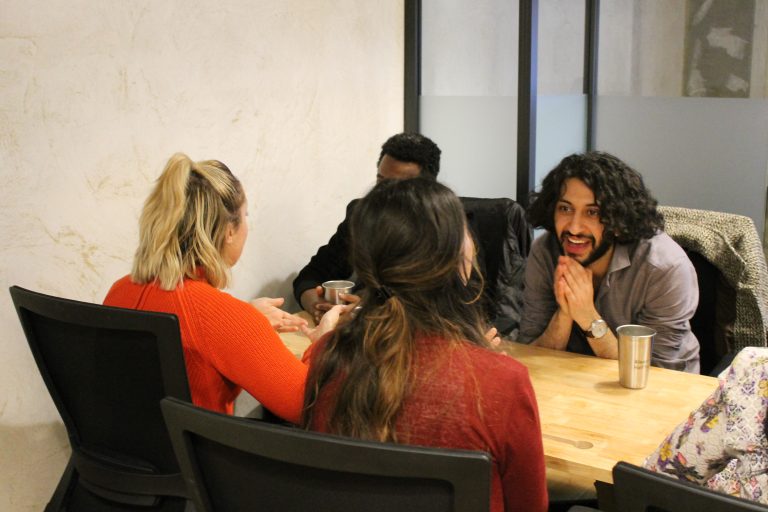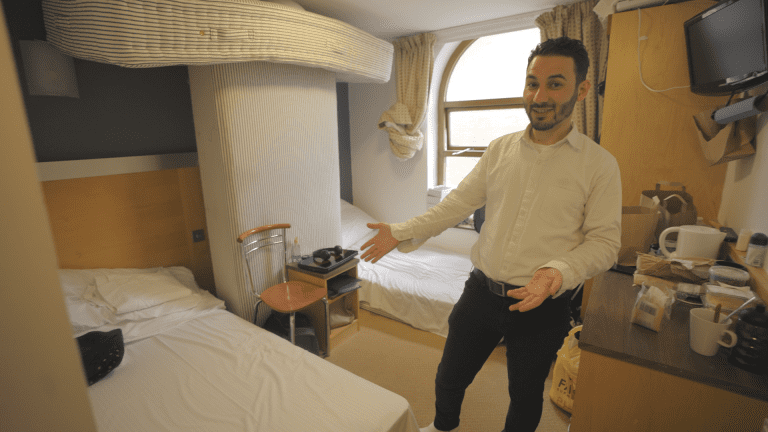
What makes an inclusive employer?
Tetiana, a refugee, explores what businesses can do to be meaningfully inclusive employers.
For a lot of refugees, employment experience in the UK is limited. Even with the eagerness to learn, adapt and contribute skills and abilities to potential employers, there are many obstacles to securing meaningful employment.
We asked Tetiana, a member of our Lived Experience panel, about her employment experience in the UK and how employers can support with overcoming the challenges:
Based on your personal experience, what are some of the challenges for businesses who want to be inclusive, particularly when employing refugees?
One of the most significant challenges for businesses aiming to be inclusive is the recognition of qualifications from other countries. Evaluating and acknowledging the qualifications and professional experiences of refugee candidates can be complex due to variations in educational systems and credentials from their home countries. As a lawyer from Ukraine, this posed as a primary challenge for me.
Employers are often hesitant to hire people from a refugee background as they may not have received training or support in the UK. For me to gain the right to work as a lawyer, I will have to pass some exams. However, these exams are expensive, which poses a financial challenge, particularly for refugees. This creates limited opportunities for professional development, and from my experience, this lack of equal access to growth opportunities results in a less inclusive atmosphere within an organisation.
Overcoming language barriers and cultural differences in networking settings is also a significant hurdle. Effective communication both in and outside the workplace is essential, and establishing connections within the community is crucial for career growth and finding meaningful employment.
What advice would you give to businesses to overcome these challenges?
To overcome these challenges, businesses need to better understand that refugees represent an incredible talent pool. Bringing many different strengths to the table:
- International experiences make refugees more innovative and adept problem solvers.
- People from a refugee background possess a wide range of skills and expertise, spanning from general laborers to highly trained professionals with decades of experience.
- Refugee workers, seeking stability and long-term employment relationships are willing to invest in a company that, in turn, invests in them in the long term.
For instance, in my case if an employer was recruiting for a role that accommodates my qualifications from Ukraine and leverages my legal expertise, this would provide me with a promising path to employment.
For businesses, these actions are crucial to promoting an inclusive workplace:
- Implementing skills assessment tests or practical evaluations during the hiring process provides a more accurate understanding of a candidate’s abilities and helps bridge the qualification recognition gap.
- Collaborating with organisations that specialize in refugee support and integration provides people with valuable resources, guidance, and connections to potential candidates.
- Doing a buddy or mentoring scheme to support new starters to help with integration.
- Actively encouraging HR teams to consider diverse talent pools, including refugees, and to emphasize the value of diversity in the workplace.
- Offering language support, training programs and cultural sensitivity programs to encourage open discussions about topics related to diversity and equity in the workplace, which are necessary for the successful integration of refugee employees.
- Having a flexible work policy that allows employees to adjust their schedules to accommodate personal needs, which contributes to a more inclusive and accommodating work environment.
I believe that with the right support from employers, I and others from refugee backgrounds can contribute effectively, and businesses will become more inclusive too.
What are your hopes for the future of refugees in the UK workforce?
I genuinely hope to see a future where everyone, regardless of where they come from, has a fair shot at employment opportunities.
I dream of a time when the UK’s workforce fully taps into the skills and experiences of refugees, who can play a significant role in enriching the workforce.
We have a lot to offer, and I believe our diverse backgrounds can spark innovation and creativity.
So, my hope for the future is a workforce that is open, inclusive, and welcoming, where everyone has a chance to thrive, no matter where they come from.



